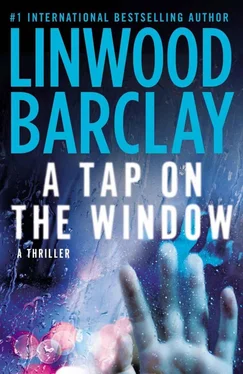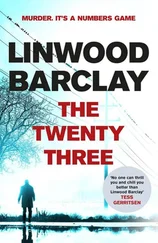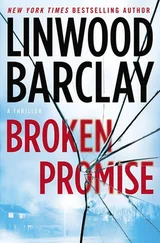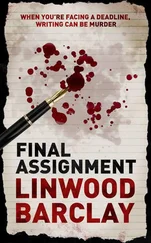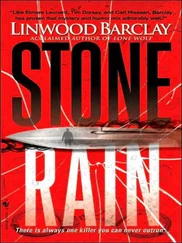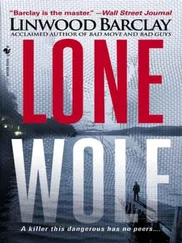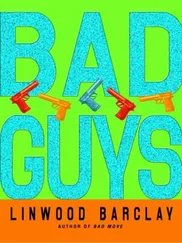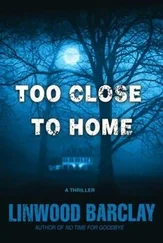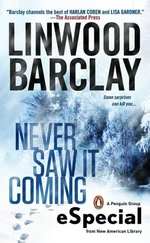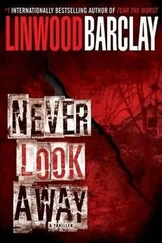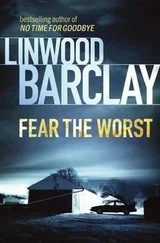“You don’t recall?” he said. “Didn’t you say earlier you’d been working on a job down in Tonawanda?”
“Yes.”
“So what time did you finish up down there?”
“I’m not sure, off the top of my head.”
“You seem to have some serious memory problems,” Brindle said. “But Russell doesn’t. He’s able to describe what you were wearing, your make of car, lots of pertinent details. You know what I find interesting?”
I shook my head.
“You seem, from what I can tell, to be a reasonably intelligent guy. But this, threatening to pitch that kid in the river, that comes across to me as a very, very stupid thing to do. I’m guessing that you’re so bent out of shape over what happened to your kid — and who could blame you there, right? — that you’re going off the deep end. Does that sound about right?”
When I failed to respond, he continued. “I know earlier, in the car, I said you were going to be going away for a while, and I’m willing to admit I might be wrong about that. A judge, a jury, they might take some sympathy on you. Understand what motivated you, even though it was the wrong thing to do. If you come clean, admit what you did, but explain why you did it, well, I could see you doing a little time, but not all that much.”
I slouched in my chair and put my hands in my pockets. My mouth was dry, but damned if I was going to ask this guy for a glass of water.
“But now that this kid’s come forward, I’m wondering whether others will,” Brindle said. “Because I’m guessing this isn’t the only one you’ve scared the shit out of. If that happens, if we get a few more complainants — in fact, this kid said he knew of at least one other person, by the name of Len Edgerton or Eggleton or something — well, that might play out very differently. I think the smartest thing you could do is—”
There was a hard rapping on the door. Two distinct knocks. Brindle’s head whipped around in time to see the door open.
It was Augustus Perry.
“Chief,” Brindle said.
“Officer.” Perry came into the room and took the seat next to Brindle. He looked at me with a mixture of contempt and amusement. “I was passing by the lineup room and couldn’t help but notice a familiar face.”
“I’m in the middle of an interrogation here, sir,” Brindle said, evidently not intimidated by his boss’ presence in the slightest. “I’m not unaware of your connection to Mr. Weaver, but just the same—”
Augie held up his hand to shush him. “I understand. You’re doing your job. That’s fine. I wouldn’t ever want it said that anyone was getting special treatment because of me.”
There was a “but” hanging in the air. I felt it — at least I hoped I was feeling it — and so did Brindle.
“Officer,” Augie said, “this complaint against Mr. Weaver was just brought to my attention. This is a very serious charge.”
“Yes, sir. It is. The complainant is very specific in his allegations.”
“What times does he say this incident took place?”
“Two nights ago. Between eight and nine. Mr. Weaver called him earlier in the day to set up a meeting on the pretext of buying some drugs.”
“You have a record of that call?”
“We do. On Russell Tapscott’s cell phone. The call came in from a pay phone.”
“A pay phone,” Augie said.
“Yes, sir.”
“And what was that time again, of the alleged occurrence?”
“Between eight and nine.”
The police chief nodded thoughtfully. “Well, Officer Brindle, I’m afraid you’re going to have to cut Mr. Weaver loose.”
“Excuse me?”
“A witness has come forward who can place Mr. Weaver elsewhere at that time.”
Donna.
It made sense. Quinn must have told Kate, and she’d told Donna, who in turn had gone to her brother and told him I was with her for the evening. At least until close to ten, when I’d admitted to everyone and his dog that I’d picked up Claire Sanders outside of Patchett’s.
Although it was so common that a wife might lie to protect her spouse, I wasn’t sure her testimony would be enough to save my ass.
Brindle shook his head vigorously. “I doubt that, sir. I think Mr. Weaver here would have mentioned an alibi if he had one. At the moment, he seems to be suffering a severe memory lapse.” He made a small snorting sound.
“Maybe Mr. Weaver thought it would be pulling rank to mention who his alibi is?”
“Chief?”
Brindle was perplexed, and he wasn’t the only one.
“Mr. Weaver was with me,” Augie said, giving me as cold a smile as I’d ever seen. “Certainly during that time you mentioned. He was at my place, in my basement, playing pool. Isn’t that right, Cal?”
“Slipped my mind,” I said. “I was thinking we’d gotten together the night before.”
“Nope,” said Augie. “Night before last.” He grinned. “And you are, for the record, the worst goddamn pool player I have ever seen.” He turned to Officer Brindle. “So, you’re going to have to go out and explain to that boy and his parents that a mistake has been made.”
“Chief, this is bull—”
“I’m sorry. What’s that?” Augie said. “Are you saying what I’ve just told you is bullshit?”
Brindle opened his mouth to speak, but nothing came out. “No, of course not, Chief.” He put a spin on that last word, the disrespect coming through loud and clear.
“Terrific. You want to attend to that while I spend a moment here with Mr. Weaver to extend our apologies over this unfortunate mistake? I believe the Tapscotts are still in reception.”
Brindle kicked back his chair and stood, his face red with anger. He wasn’t buying a word of it. “Yeah. I’ll do that.”
“You might also want to mention the boy could be looking at charges of mischief if I weren’t in such a forgiving mood today.”
Brindle looked like he’d just been slapped with a wet fish, but I was too dumbstruck to enjoy it. I didn’t know what Augie’s game was here.
“Yeah,” Brindle said. “I’ll get right on that.”
He caught his foot on the leg of his chair as he turned to leave, and gave it another kick. The chair skittered across the floor and banged into the wall. Brindle didn’t look back as he left the room, letting the door close just a little too hard on the way out, enough to make us both blink.
Neither of us said anything for several seconds. We sat there and looked at one another.
“I’m going to need my phone back,” I said.
“You’re welcome,” Augie said. “You and I should have a chat.”
There was a time when I labored under the delusion that I was an honorable man.
I believed I had ideals, that my behavior was governed by a set of high-minded principles. But as you get older you start to realize every day is made up of compromises. Bending the rules doesn’t seem worth losing sleep over.
I knew when it was I’d crossed the line, just over six years ago. But just because I’d done it then didn’t mean I couldn’t have stepped back over that line. I could have promised myself to do better. Maybe, for a while, I actually had, but I hadn’t just stepped over the line in the last couple of months. I had pole-vaulted over it. I’d run at that line flat out and jumped. I’d threatened to throw one young man into a fast-moving river, locked another in a trunk, spilled some unleaded onto a third man’s pants and threatened to throw a lit match at him. I’d convinced a fourth — I think he was only sixteen — that I was going to add his right pinky to a finger collection.
One part mourning, one part rage. Mix them together, watch out.
That first time I’d crossed the line was before I got to Griffon. It was why I was a private detective now, and no longer a member of the Promise Falls police force.
Читать дальше
